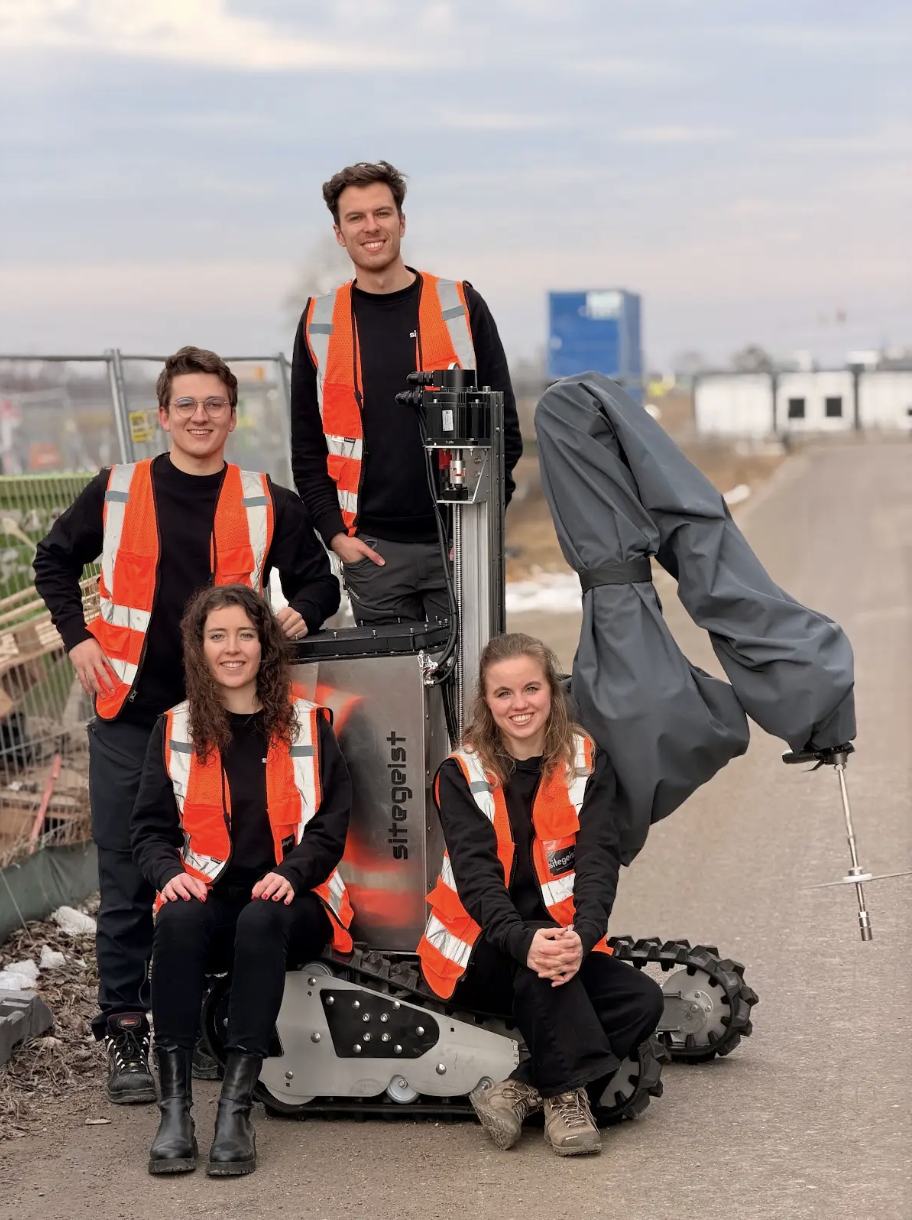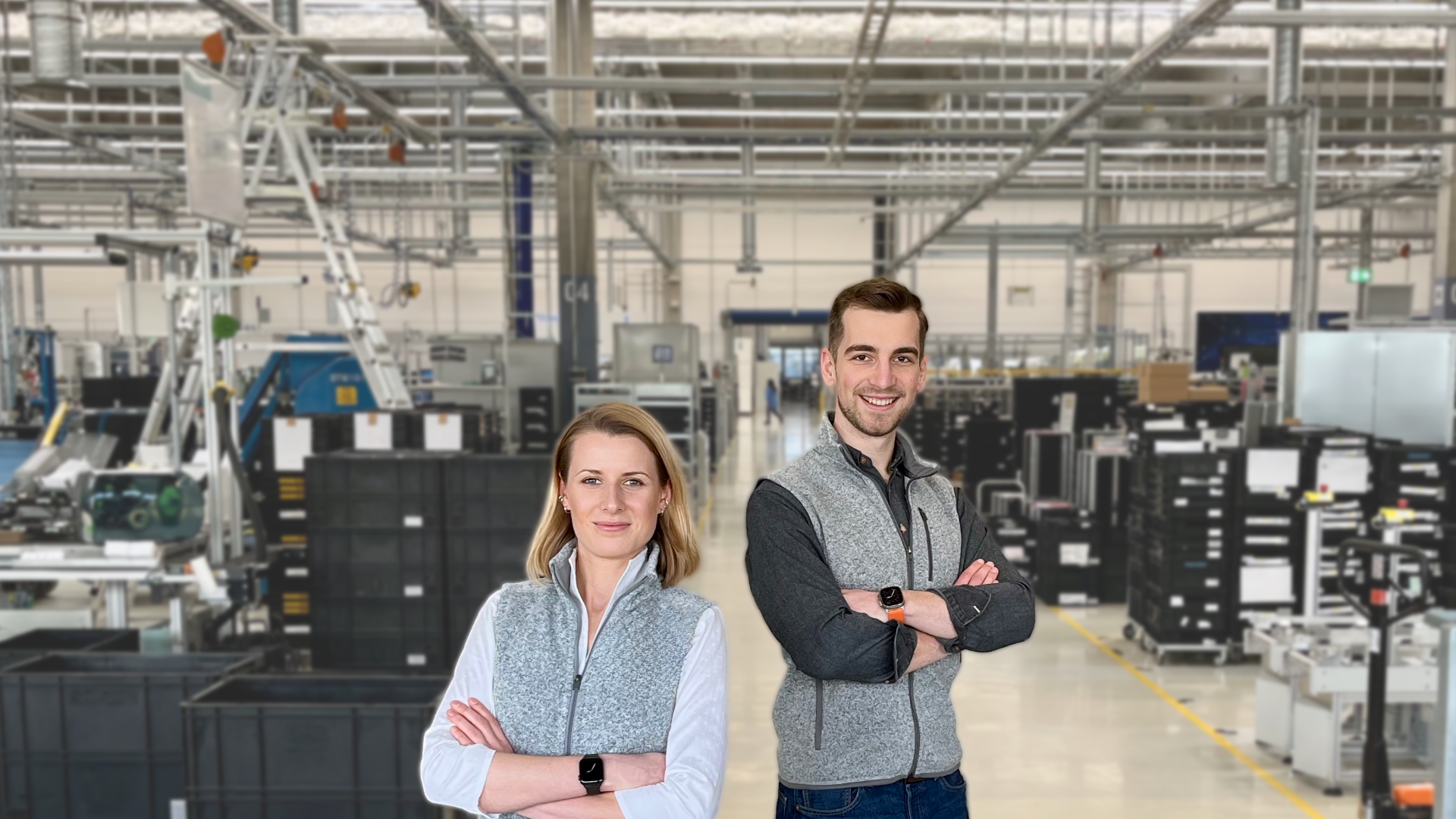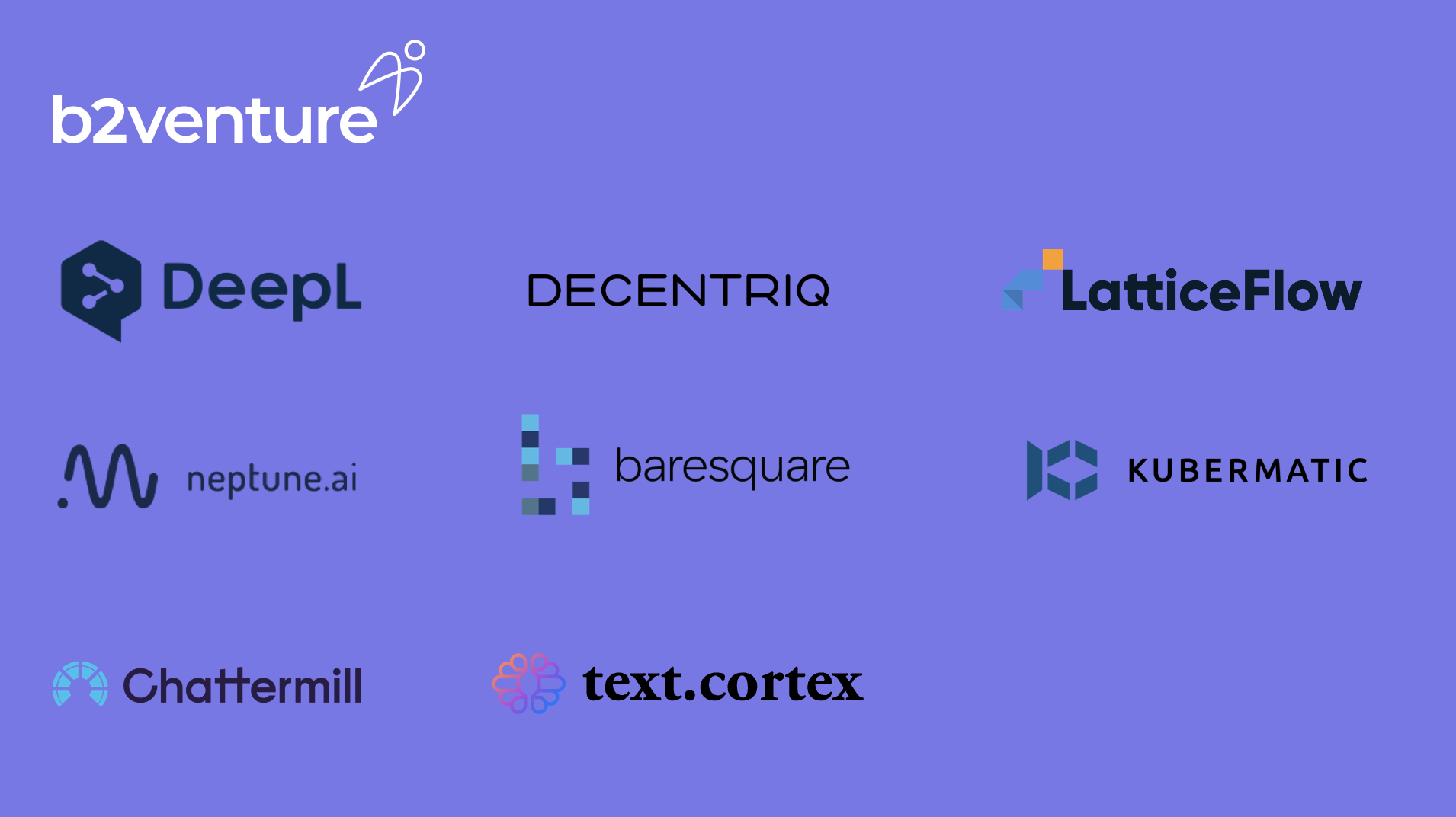Rethinking the future of education with Verena Pausder
Rethinking the future of education with Verena Pausder
Verena Pausder and b2venture have been close even before b2venture was founded. She helped establish START Global at the University of St.Gallen together with Florian Schweitzer more than twenty years ago. Verena went on to found several digital companies and has become a powerful advocate for founders, startups, and equality in Germany. She has an impressive investment portfolio, making her one of the best-connected angel investors in Berlin.

We had the chance to virtually ‘sit down’ with Verena and talk about the impact of Covid-19 with respect to homeschooling, Education Tech (Edtech), and the digital divide.
Q: If you compare the current situation with the 2000 or 2008 crisis — what is different from your point of view?
Compared to 2008 — Corona has a greater emotional impact on all of us. In the financial crisis, you could blame others who caused it, and they had to make up for it, and no one had sympathy.
Compared to 2000 — I was in my early 20s and it hit me very hard because it almost felt like the end of a future dream. Back then, the future was finally within my grasp and it felt like the important time in life was about to kick off. Then the crisis came, and I had the feeling that the future had been abolished. I think there’s a lesson we can learn from the period around 2000: Life goes on, and we now should not put innovation, startups, entrepreneurship to the test and say “Well, if so many of them didn’t get through the crisis now, then this doesn’t seem to be the best answer to the future.”
Q: With thousands of schools being closed right now in Germany — what is the impact of Corona on the school system in our country and worldwide?
At this point, Corona is like a catalyst or in other words probably the best tutor our school system could have wished for: for the first time we are forced to deal with what digital education actually means.
I have been pushing this issue for 8 years and I have said over and over again that schools are not well-equipped: we have a great social injustice because many children have no devices at all and are completely cut off from issues such as media or digital literacy and only play on smartphones and use them as Game Boys. This crisis shows that the’DigitalPakt Schule’ is not a ‘nice to have’. It must be part of our future aspirations in Germany, and we should prepare schools to train the engineers and developers of tomorrow. Despite all the negative aspects of this outbreak, it is positive that for the first time all teachers had to say: “Okay, now I’m going to get an overview of all existing tools. I’m going to put pressure on the school that we need interactive formats”. And again, when you deal with something new, your reluctance to adopt the tool decreases over time.
Q: Are there countries that handle the impact on the schools and educational systems better than Germany and if so, how?
Let’s stay in Europe — every country lacking an abundance of natural resources must put education at the top of their agenda. And this is what countries such as Finland, Denmark, Estonia, Armenia, i.e. small countries that have realized that their future depends on a natural resource — called education — are doing. They have done this much earlier and to a deeper extent than other European countries. That’s why those are now among the winners of the education crisis. For them the right tools were already in place. In Finland, people are surprised when you ask, “How are you managing this situation in your schools right now?”. For Finnish people, E-learning is already normal. And of course, in Asia and especially Singapore it is common sense that you acquire skills for the digital world just as much as for the analogue world.
Q: Do you believe the educational inequality and the digital divide will only widen since private schools are obviously much better equipped?
Private schools are better equipped, but teachers are not necessarily better prepared for the situation. They might be better prepared than some state schools, but there is still a lot of catching up to do, especially regarding interactive formats. It’s easy to send video links around and say “Here child, look at geometry”. But to have a feedback channel with the teacher and to do this in a way that catches each and every child’s attention, is currently not available. And about educational injustice: The ‘Verband für Bildung und Erziehung’ (Association for Education and Upbringing) has estimated that 2.5 million pupils do not have a computer or printer at home. Furthermore, many parents do not speak the “language of education” and are not able to deal with homeschooling their children. This is widening the educational gap. If we had already implemented the ‘DigitalPakt Schule’, schools would have been now adequately equipped with computers and those could have been lent to the households in need free of charge.
Q: Which specific advice do you have for schools and parents?
Reduce the pressure. If you don’t have the right equipment right now, or the money to get it in the short term, if you are overwhelmed because you have several children of different ages, if you are a single parent, or if there is even domestic violence — then take the pressure off.
In the worst case, the lessons are not taking place as normal. Think of a project that you want to keep in good memory when you think of Corona and homeschooling your children. Tell your kids: “Let’s study together now. We are going to do two hours every day on Hour of Code. Let’s learn Spanish as a family together”. Or try to learn Python online for yourself. If you have the feeling “I can’t make it, I can’t keep up, I need some space” — then ease out the pressure and tell yourself: “As long as the children have a bit of structure in their daily life, stay creative and curious, then it is okay if you’re not following the standard school curriculum for few months.”
Q: What are the biggest cracks emerging through this overnight adoption of Edtech?
I do not see any risks. Quite the contrary — society now has the chance to find out that Edtech is the new normal. We thought about it so much before, and we were so afraid of a future with digital education. We thought we would use our children as guinea pigs by swamping them with technology. There were a lot of fears in the minds of parents but also teachers and I believe that we now realize that trial and error helps. We are also seeing the limits of technology and digitalization.
Q: What will happen after the crisis when Edtech is no longer a necessity in schools?
My hope is that Edtech will continue to be an essential element of learning. Edtech has been in the shadows in the last decades. Language platforms like Babbel, Duolingo, busuu are of course large companies, but they have always been an alternative and a ‘nice to have’ but not a ‘must-have’. Now, in the crisis, we are seeing how important these Edtech providers are. There are so many great applications, such as simpleclub, an app with which over a million teenagers in Germany learn for their Abitur. I just hope that when this extreme form of homeschooling ends, technology will continue to be used for canceled or afternoon classes at all-day schools, or for tutoring during school holidays and project work between students. My hope is that a great deal remains and that this is not just a short-term hype.
Verena Pausder and b2venture have been close even before b2venture was founded. She helped establish START Global at the University of St.Gallen together with Florian Schweitzer more than twenty years ago. Verena went on to found several digital companies and has become a powerful advocate for founders, startups, and equality in Germany. She has an impressive investment portfolio, making her one of the best-connected angel investors in Berlin.

We had the chance to virtually ‘sit down’ with Verena and talk about the impact of Covid-19 with respect to homeschooling, Education Tech (Edtech), and the digital divide.
Q: If you compare the current situation with the 2000 or 2008 crisis — what is different from your point of view?
Compared to 2008 — Corona has a greater emotional impact on all of us. In the financial crisis, you could blame others who caused it, and they had to make up for it, and no one had sympathy.
Compared to 2000 — I was in my early 20s and it hit me very hard because it almost felt like the end of a future dream. Back then, the future was finally within my grasp and it felt like the important time in life was about to kick off. Then the crisis came, and I had the feeling that the future had been abolished. I think there’s a lesson we can learn from the period around 2000: Life goes on, and we now should not put innovation, startups, entrepreneurship to the test and say “Well, if so many of them didn’t get through the crisis now, then this doesn’t seem to be the best answer to the future.”
Q: With thousands of schools being closed right now in Germany — what is the impact of Corona on the school system in our country and worldwide?
At this point, Corona is like a catalyst or in other words probably the best tutor our school system could have wished for: for the first time we are forced to deal with what digital education actually means.
I have been pushing this issue for 8 years and I have said over and over again that schools are not well-equipped: we have a great social injustice because many children have no devices at all and are completely cut off from issues such as media or digital literacy and only play on smartphones and use them as Game Boys. This crisis shows that the’DigitalPakt Schule’ is not a ‘nice to have’. It must be part of our future aspirations in Germany, and we should prepare schools to train the engineers and developers of tomorrow. Despite all the negative aspects of this outbreak, it is positive that for the first time all teachers had to say: “Okay, now I’m going to get an overview of all existing tools. I’m going to put pressure on the school that we need interactive formats”. And again, when you deal with something new, your reluctance to adopt the tool decreases over time.
Q: Are there countries that handle the impact on the schools and educational systems better than Germany and if so, how?
Let’s stay in Europe — every country lacking an abundance of natural resources must put education at the top of their agenda. And this is what countries such as Finland, Denmark, Estonia, Armenia, i.e. small countries that have realized that their future depends on a natural resource — called education — are doing. They have done this much earlier and to a deeper extent than other European countries. That’s why those are now among the winners of the education crisis. For them the right tools were already in place. In Finland, people are surprised when you ask, “How are you managing this situation in your schools right now?”. For Finnish people, E-learning is already normal. And of course, in Asia and especially Singapore it is common sense that you acquire skills for the digital world just as much as for the analogue world.
Q: Do you believe the educational inequality and the digital divide will only widen since private schools are obviously much better equipped?
Private schools are better equipped, but teachers are not necessarily better prepared for the situation. They might be better prepared than some state schools, but there is still a lot of catching up to do, especially regarding interactive formats. It’s easy to send video links around and say “Here child, look at geometry”. But to have a feedback channel with the teacher and to do this in a way that catches each and every child’s attention, is currently not available. And about educational injustice: The ‘Verband für Bildung und Erziehung’ (Association for Education and Upbringing) has estimated that 2.5 million pupils do not have a computer or printer at home. Furthermore, many parents do not speak the “language of education” and are not able to deal with homeschooling their children. This is widening the educational gap. If we had already implemented the ‘DigitalPakt Schule’, schools would have been now adequately equipped with computers and those could have been lent to the households in need free of charge.
Q: Which specific advice do you have for schools and parents?
Reduce the pressure. If you don’t have the right equipment right now, or the money to get it in the short term, if you are overwhelmed because you have several children of different ages, if you are a single parent, or if there is even domestic violence — then take the pressure off.
In the worst case, the lessons are not taking place as normal. Think of a project that you want to keep in good memory when you think of Corona and homeschooling your children. Tell your kids: “Let’s study together now. We are going to do two hours every day on Hour of Code. Let’s learn Spanish as a family together”. Or try to learn Python online for yourself. If you have the feeling “I can’t make it, I can’t keep up, I need some space” — then ease out the pressure and tell yourself: “As long as the children have a bit of structure in their daily life, stay creative and curious, then it is okay if you’re not following the standard school curriculum for few months.”
Q: What are the biggest cracks emerging through this overnight adoption of Edtech?
I do not see any risks. Quite the contrary — society now has the chance to find out that Edtech is the new normal. We thought about it so much before, and we were so afraid of a future with digital education. We thought we would use our children as guinea pigs by swamping them with technology. There were a lot of fears in the minds of parents but also teachers and I believe that we now realize that trial and error helps. We are also seeing the limits of technology and digitalization.
Q: What will happen after the crisis when Edtech is no longer a necessity in schools?
My hope is that Edtech will continue to be an essential element of learning. Edtech has been in the shadows in the last decades. Language platforms like Babbel, Duolingo, busuu are of course large companies, but they have always been an alternative and a ‘nice to have’ but not a ‘must-have’. Now, in the crisis, we are seeing how important these Edtech providers are. There are so many great applications, such as simpleclub, an app with which over a million teenagers in Germany learn for their Abitur. I just hope that when this extreme form of homeschooling ends, technology will continue to be used for canceled or afternoon classes at all-day schools, or for tutoring during school holidays and project work between students. My hope is that a great deal remains and that this is not just a short-term hype.

The Author
Team







.jpg)












.png)




.jpg)
-min.png)


.jpg)














































.jpg)




















